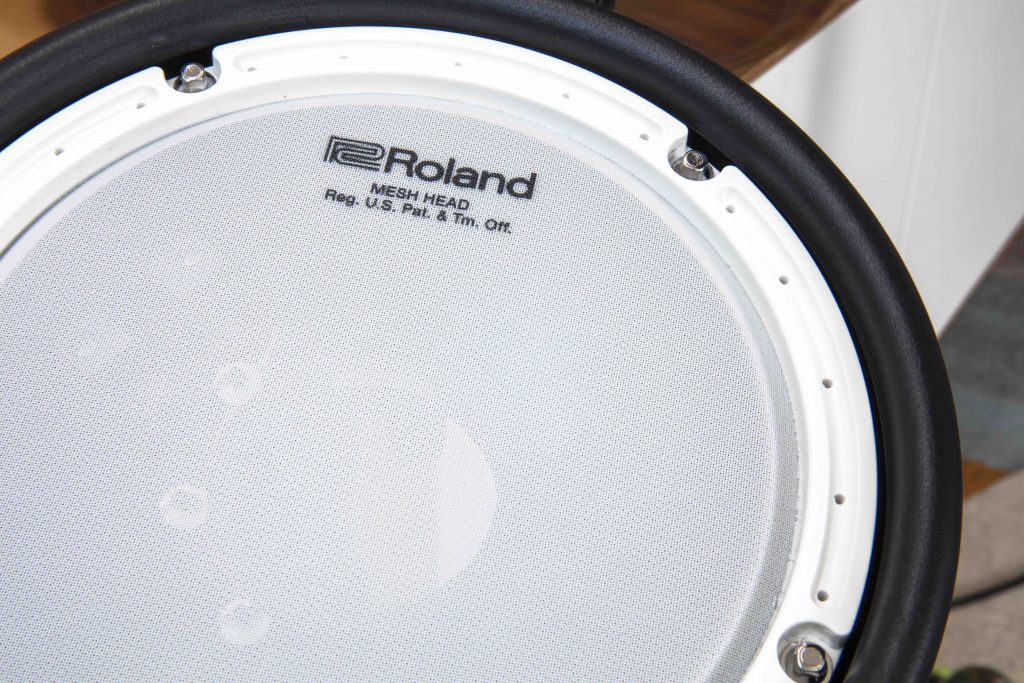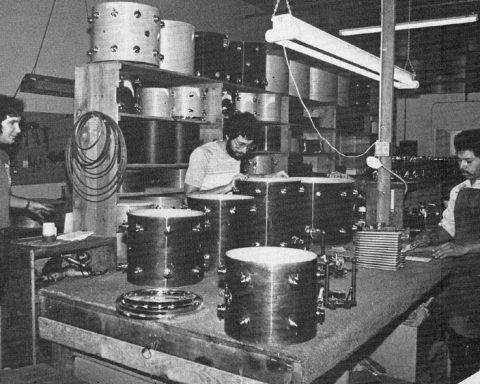Since Simon Ash opened Ash Bash Drum School in 1999, he’s been a devotee of electronic drums. Fast-forward two decades. Simon has helped aspiring drummers of all ages set off on their percussion paths. As unique as each student is, Simon retains core fundamentals behind his instructional style and his go-to teaching kits.
A Teacher’s Influence
Music teachers like Simon Ash are more than tutors. They’re mentors whose opinions and advice form lasting impressions. Their influence can determine a student’s direction, even an entire career choice. It’s a significant responsibility and one he takes seriously. “Thousands of students have come through these doors,” Simon says proudly of his homegrown drum academy.
Furthermore, Simon relies on electronic drums to deliver consistent lessons in a controlled environment. While he enjoys the opportunity to integrate technology into his instruction approach, it’s more than keeping up with trends. Simon utilizes these new tools to teach traditions all drummers need to master.

"I wouldn’t change back to acoustics for teaching. Electronics are the way forward."
Feel is the Foundation
Like all instructors, Ash believes that getting the best feel and sounds out of a kit is the cornerstone of his approach. “You tend to get guided by your ears,” Simon says, when describing the very personal way a drummer connects with their kit. “It’s the sound.”
For Simon, that experience came when he first encountered Roland V-Drums “I saw them and thought, ‘This is the future.’ It changed the game.”

Electronic Teaching Style
Meanwhile, the benefits of electronic drums inform the key element of his teaching style. “With acoustic kits, you have to wait for students to finish. When you’re playing together, you can call out instructions over the noise of the kit. It’s perfect for teaching.”
In addition to the ability to maintain flexible volume, Simon’s hands-on approach and packed schedule mean durability is equally important. “In a nutshell, reliability is paramount for me. I never need to worry that I’m going to come into the studio and a piece of equipment isn’t going to work.”

Volume Control
There is one aspect of traditional kits that is particularly challenging for professional drum instructors working long shifts. It’s volume. “When you’re teaching for seven or eight hours a day on acoustic kits, you get a headache,” Ash states plainly. “I wouldn’t change back to acoustics for teaching. Electronics are the way forward for sure.”
The Power of Connectivity
Students these days have more independent access to music than ever. This means they’ll likely get inspired by jamming to their personal picks. “The ability to Bluetooth your music is great,” he enthuses. “You can play along with your favorite songs and be in the band. It’s the feeling of playing the drums.”

A Crucial Decision
Of course, electronic drums are great for taming prolonged noise levels and offering practice perks like Bluetooth connectivity. However, when it comes to making a key decision like purchasing a kit, many factors come into play.
When talking specifics, Simon’s answer is straightforward. “With Roland, you get the product and the quality,” he says with confidence. The choice is a win on many levels. “It’s a great investment,” continues Simon. “They’re reliable, sound great, and the students love them. What’s not to like?”
“The only limit is the limit you put on your own practice time.”
Follow Your Ears
As a trusted information source for parents and pupils, Simon encourages families to always follow their ears. “It’s a musical instrument,” he says. “Those things you can’t put a value on. You’ve got to look at the bigger picture. These products get sound. It’s going to last as long as you want to play.”
Ever a source of inspiration, Simon confirms that there is no replacement for putting the work in behind the kit. Luckily, electronic kits like the Roland TD-07KV make musical mastery more attainable—and practical—than ever. “The only limit is the limit you put on your own practice time.”






